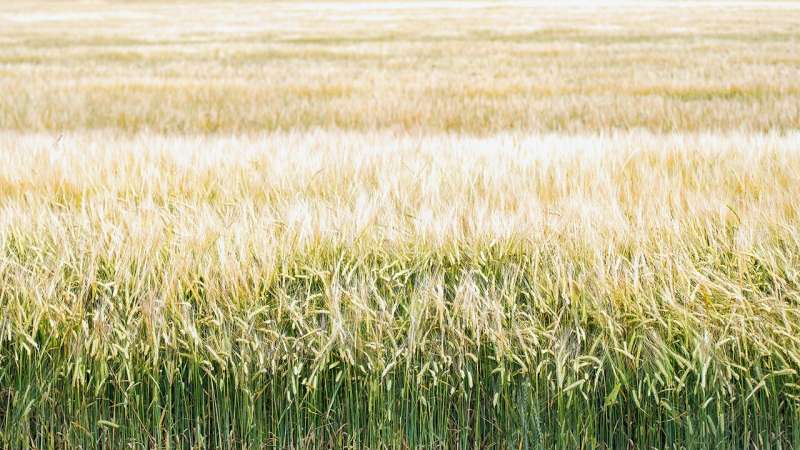This article has been reviewed according to Science X's editorial process and policies. Editors have highlighted the following attributes while ensuring the content's credibility:
fact-checked
trusted source
proofread
Study examines struggles of Haitian migrants self-managing diabetes on Dominican Republic sugar cane fields

A new study from the University of Missouri Sinclair School of Nursing has found that barriers, including poverty, low health literacy, cultural beliefs, lack of infrastructure and political issues all work together to hinder diabetes self-management for Haitian migrants working in sugar cane fields in the Dominican Republic.
Rosalia Molina, a nurse who has taken previous medical missionary trips to the Dominican Republic to help impoverished individuals self-manage their diabetes, led the study as part of her doctoral studies at the MU Sinclair School of Nursing. She interviewed health care workers in the Dominican Republic about their challenges providing care to Haitian migrants working in "bateyes," which are impoverished shanty-town camps on remote sugar cane fields.
A paper describing the research, titled "Enhancing diabetes health outcomes among Haitian migrants living in Dominican Bateyes," was recently published in The Science of Diabetes Self-Management and Care.
"These workers have very little resources, as the bateyes (pronounced BAY-tees) often have no running water, electricity or plumbing, and many of the individuals with diabetes have not been diagnosed or don't know what to do to effectively self-manage their diabetes," Molina said. "By first better understanding the compounding barriers that are limiting access to health care for these struggling individuals, we can develop more targeted interventions to help them survive as long as possible."
Poverty and lack of resources
While rice may be the primary source of food for these remote migrant workers, rice is a high-carb food, which may interfere with optimal blood sugar levels for those with diabetes. Through the interviews, Molina learned that the impoverished migrants often see no other choice but to eat the high-carb food to avoid starvation.
Insulin is a common drug given to help individuals with diabetes regulate the amount of glucose in their blood. However, it requires proper refrigeration in order to be most effective, and the remote bateyes unfortunately have no refrigeration options available.
Low health literacy and cultural beliefs
Through the interviews, Molina learned many of the migrants were more likely to trust their Haitian village priests who preach about Vodou, a traditional Afro-Haitian religion, rather than licensed medical professionals who may be unaware about the Haitians' religious and cultural beliefs.
"For example, a common diabetes symptom is foot wounds, but the individuals may tell us they believe the foot wound was caused by witchcraft, so it speaks to the low health literacy rates as a potential barrier to self-management of diabetes," Molina said.
Lack of infrastructure
Roads leading into the bateyes are often unpaved, and after heavy rainfall, the roads become so muddy that the remote bateyes become inaccessible for vehicles carrying health care professionals.
Political issues
Molina added that many of the migrant workers come to the Dominican Republic on a seasonal basis without the required work permits. Therefore, being undocumented leads many of these migrant workers with diabetes to avoid seeking medical help at hospitals to avoid the possibility of deportation.
Informing the future
While these challenges compound with each other to hinder access to health care for impoverished individuals, Molina said the findings can help inform possible solutions, such as planting community gardens in these remote areas to offer the workers alternative food sources, as well as working with Haitian village priests to incorporate health care education into their lectures.
"What is interesting is I am also active here in Missouri helping the Hispanic community—many of whom immigrated from Mexico and South America—with their diabetes self-management, and the challenges they face are often very similar to the challenges faced by the Haitians in the Dominican Republic," said Molina, who immigrated to the United States from Mexico in 1995. "It is important for the public to realize that diabetes is a very expensive and difficult disease for people to manage on their own, especially if they live in poverty, and I am passionate about trying to help."
Maithe Enriquez is a co-author on the study. Molina earned her doctoral degree from MU in 2022 and now works as an assistant professor at Research College of Nursing in Kansas City, Missouri.
More information: Rosalia Molina et al, Enhancing Diabetes Health Outcomes Among Haitian Migrants Living in Dominican Bateyes, The Science of Diabetes Self-Management and Care (2023). DOI: 10.1177/26350106231178838




















